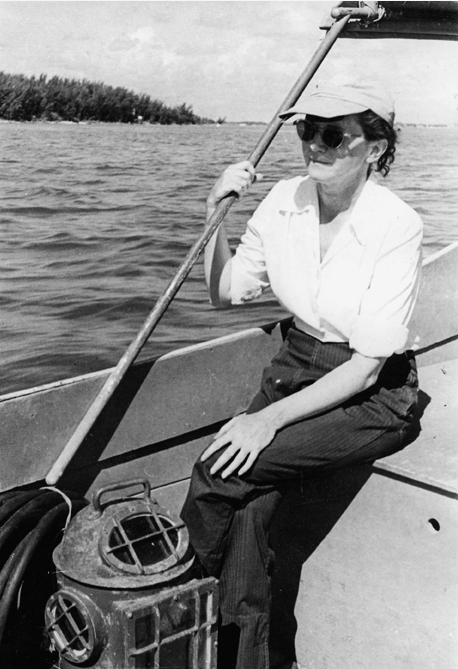DRIVEN BY NATURE


Courtesy of Brain Pickings
Following her father’s sudden death in 1935, Rachel Carson had to remain at home to care for her mother whose health was deteriorating. During this time, she took a temporary position in the U.S. Department of Fisheries writing copy for an educational broadcast, Romance Under the Waters.

"Rachel Carson on University of Miami research boat Nauplius, to do shallow diving with a copper helmet, 1949." Courtesy of the Rachel Carson Council

"Rachel Carson examining a specimen." Courtesy of the National Resources Defense Council
Carson worked at the department for another two years collecting field data and writing reports on fish populations. Using that information, she wrote and submitted an article to The Baltimore Sun. Shortly thereafter, in 1937, her sister passed away, leaving Carson to care for her two nieces and mother.
The ensuing years led to a major change in Carson’s career. After writing an essay called The World of Waters that The Department of Fisheries deemed too impressive to be published, Carson sent it to The Atlantic Monthly, which published it as Undersea. Following its publication, Carson received many letters from impressed publishers, asking when she would write again. Simon & Schuster even gave her a contract to expand the essay into a book. Under the Sea Wind was published in 1941, receiving high reviews but poor sales.

Courtesy of the Rachel Carson Council
She searched for a position as a naturalist or a writer outside of the Fish and Wildlife Service without success, so she was promoted to Chief Editor. It was during this time that DDT first came to Carson’s attention. She was interested in the subject, but other editors didn’t see pesticides as a viable research topic, so her work wasn’t published. Instead, Carson finished her sea trilogy with The Sea Around Us and The Edge of the Sea. The books gave Carson the financial stability to quit her job at the Bureau and focus full time on her writing.
“She insisted that what science conceived and technology made possible must first be judged for its safety and benefit to the “whole steam of life.”
- Linda Lear